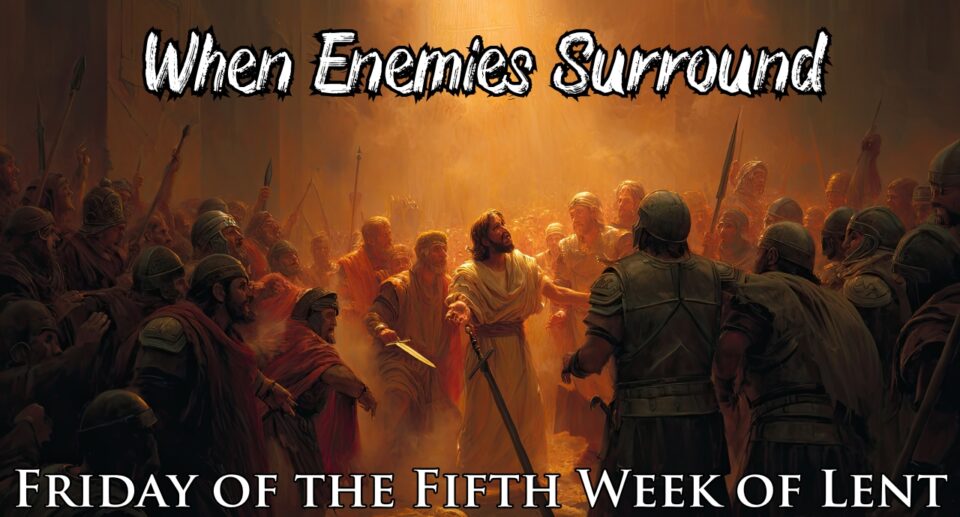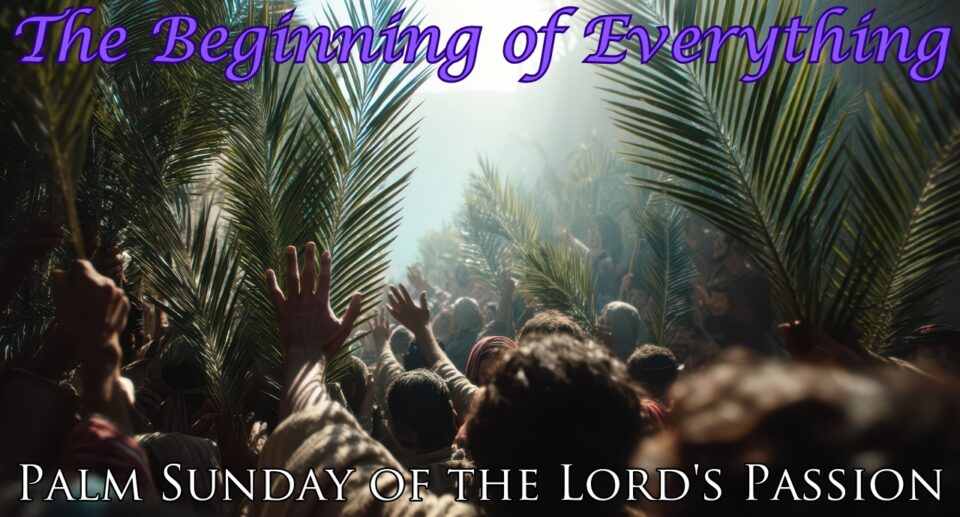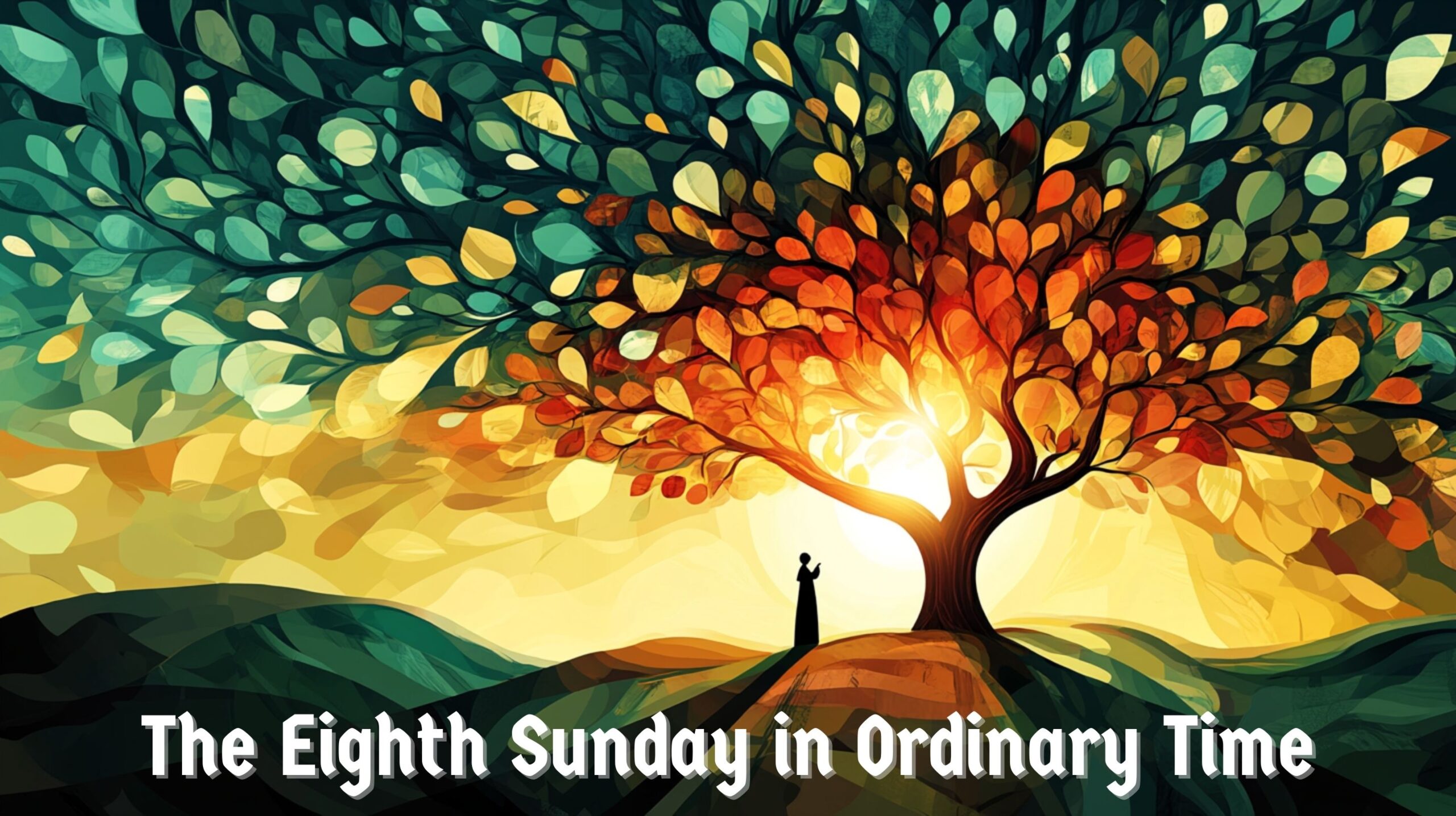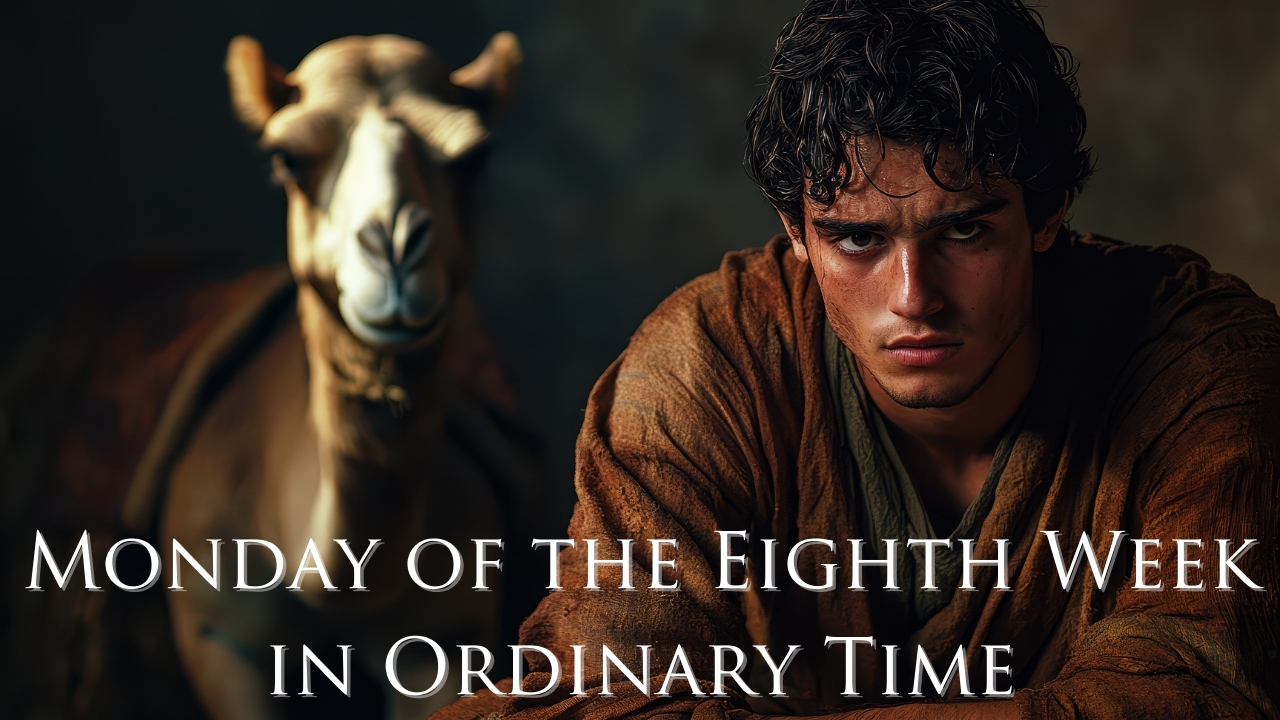Gathered from Exile: From Scattered Bones to United Body | Daily Readings | April 12, 2025
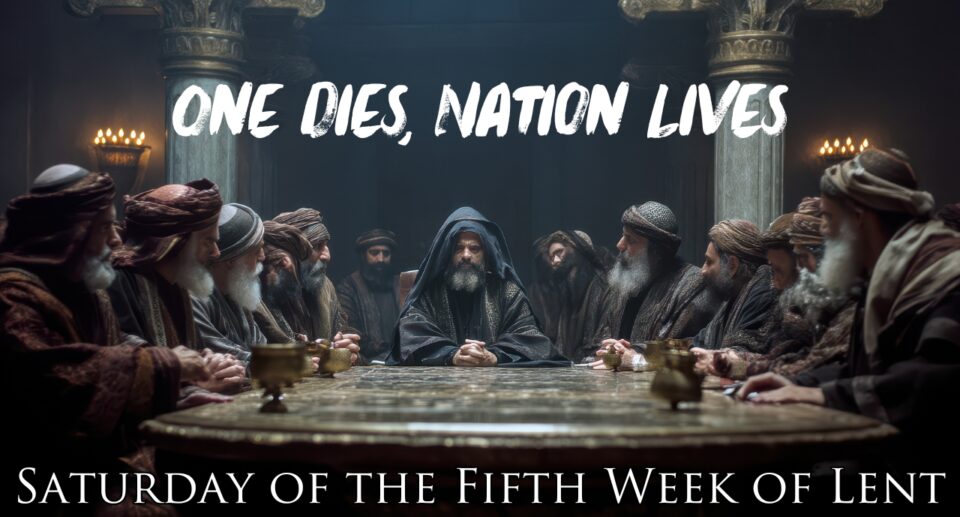
How does God gather what has been scattered? Today’s powerful readings reveal the divine work of unification that reaches its climax in Christ’s sacrifice—the ultimate act of gathering humanity back to God and to each other.
Through this reflection, you’ll discover:
- How the prophetic visions of Ezekiel and Jeremiah find fulfillment in Christ
- Why true unity comes through sacrifice rather than domination
- How to recognize God’s gathering work in our divided world and hearts
- The deep connection between Christ’s death and the healing of human division
Readings covered: Ezekiel 37:21-28; Jeremiah 31:10, 11-12abcd, 13; John 11:45-56
Perfect for anyone experiencing division in relationships, communities or within themselves, and for all seeking deeper meaning as we prepare to enter Holy Week.
#LentenReflection #FifthWeekOfLent #DivineGathering #HolyWeekPreparation #EzekielProphecy #ChristUnites #HealingDivision
Gathered from Exile: The God Who Makes Us One
The bones of Israel lay scattered across foreign lands. Families torn apart by conquest, communities fractured by exile, identity threatened by assimilation. The northern kingdom had fallen to Assyria nearly two centuries earlier. Now Babylon had crushed Jerusalem, destroyed Solomon’s temple, and carried away Judah’s best and brightest. The people who had once been united under David’s crown now existed as fragments, disconnected and disoriented.
Into this brokenness, Ezekiel speaks a word so audacious it must have sounded like madness: “Thus says the Lord GOD: I will take the children of Israel from among the nations to which they have gone, and gather them from all sides to bring them back to their land.”
Reunification. Restoration. Return. Not just for Judah, but for the northern tribes long thought lost to history. One nation again, under one king, with God dwelling in their midst forever.
As we stand on the eve of Holy Week, today’s readings present us with a powerful vision of divine gathering and unification—and the shocking cost required to make it possible. From Ezekiel’s vision of scattered Israel reunited, to Jeremiah’s promise of mourning transformed to joy, to the high priest’s unwitting prophecy about Jesus dying “to gather together the dispersed children of God,” these texts speak directly to our fractured world and divided hearts.
Ezekiel prophesied during the Babylonian exile, after Jerusalem’s destruction in 587 BC. The northern kingdom of Israel had already been conquered and scattered by Assyria in 722 BC. For nearly 150 years, the northern tribes had been lost among the nations, intermarrying and largely assimilating into foreign cultures. Many assumed they were gone forever, their distinct identity dissolved in the seas of empire.
Yet Ezekiel dares to proclaim that God will gather both Judah and these lost northern tribes, bringing them back to their land under a new David. “My servant David shall be king over them,” God declares through Ezekiel, “and they shall have one shepherd.”
This promise must have seemed impossible to Ezekiel’s original audience. The descendants of the northern tribes were scattered across the known world, their whereabouts largely unknown. David’s royal line appeared broken. Jerusalem lay in ruins. The temple—God’s dwelling place—was destroyed.
Our responsorial psalm from Jeremiah echoes this theme of gathering: “Hear the word of the LORD, O nations, proclaim it on distant coasts, and say: He who scattered Israel, now gathers them together, he guards them as a shepherd his flock.”
Again we encounter this image of shepherd and scattered flock now being reunited. The same God who allowed the scattering—as painful judgment for infidelity—now promises restoration. The result? “They shall come streaming to the LORD’s blessings… I will turn their mourning into joy, I will console and gladden them after their sorrows.”
Then we turn to our Gospel, where these prophetic themes find both fulfillment and radical reinterpretation through Jesus. After raising Lazarus from the dead—a powerful sign of life overcoming death—Jesus faces mounting opposition from religious authorities. Many believe in him because of this miracle, but others report him to the Pharisees.
The chief priests and Pharisees call a council meeting, worried that “if we leave him alone, all will believe in him, and the Romans will come and take away both our land and our nation.” Their concern is political survival. They fear Jesus will trigger Roman repression that will destroy the limited autonomy they still enjoy.
Then Caiaphas, the high priest, makes a chilling calculation: “It is better for you that one man should die instead of the people, so that the whole nation may not perish.”
John adds this commentary: “He did not say this on his own, but since he was high priest for that year, he prophesied that Jesus was going to die for the nation, and not only for the nation, but also to gather into one the dispersed children of God.”
Here the gathering theme from Ezekiel and Jeremiah takes an unexpected turn. Yes, Jesus will unite the scattered people of God—but through his death. The high priest intends a coldly pragmatic elimination of a threatening figure. God repurposes this evil intention into the means of cosmic reconciliation.
As we prepare to enter Holy Week tomorrow with Palm Sunday, these readings illuminate the deeper meaning of Christ’s passion. His death is not merely a tragedy or even just an atoning sacrifice. It is the means by which God gathers what has been scattered—not just the tribes of Israel, but all humanity.
What does this mean for us today?
First, these readings speak powerfully to our experiences of fragmentation and exile. We live in a world of deep divisions—political, religious, racial, economic. Families are fractured, communities polarized, nations in conflict. Even within ourselves, we often feel scattered—our attention, loyalties, and identities pulled in competing directions.
The prophetic promise that God gathers what has been scattered offers profound hope. The One who created cosmos out of chaos continues this reunifying work in our world and in our hearts. No division is too deep, no scattering too complete for divine gathering.
Second, today’s readings challenge our assumptions about how unification happens. The religious authorities in John’s Gospel fear that Jesus will trigger violent repression, potentially destroying the nation. Their solution is pragmatic elimination of the perceived threat. But God’s path to unity runs directly through the cross—through self-giving love rather than self-protecting violence.
This remains countercultural today. We often assume that unity requires suppressing difference, eliminating opposition, or enforcing conformity. God’s way involves embracing the pain of division and transforming it through sacrificial love.
Third, these texts reveal that true gathering involves transformation, not just relocation. Ezekiel speaks of a new heart and spirit. Jeremiah describes mourning turned to joy. In John’s Gospel, Jesus’ death leads to resurrection and the gift of the Spirit. Divine gathering doesn’t just bring us together as we are. It makes us new.
As Holy Week approaches, we’re invited to reflect on the scattered places in our own lives. Where do we experience exile from our true selves, from others, from God? What fragments our attention, divides our loyalty, or separates us from those we love? These places of painful scattering become the very spaces where God’s gathering work begins.
The gathering vision in today’s readings isn’t just future hope. It begins now, wherever we allow God to heal divisions within and between us. Every act of forgiveness, every bridge built across difference, every reconciliation attempted participates in this cosmic gathering.
As we stand at the threshold of Holy Week, these readings prepare us to understand the cross as God’s definitive gathering action. Jesus stretches out his arms on the cross to embrace all humanity in one sacrificial act of love. From that moment forward, all other forms of human unity find their source and pattern in this cruciform gathering.
Tomorrow we begin the sacred journey through Holy Week. As we witness Jesus’ entry into Jerusalem, his last supper with disciples, his agony in the garden, his trial and crucifixion, may we recognize in these events the costly, beautiful work of the God who gathers what has been scattered. And may we open ourselves—our divided hearts, relationships, communities, and world—to this divine gathering that transforms exile into homecoming and death into life.

